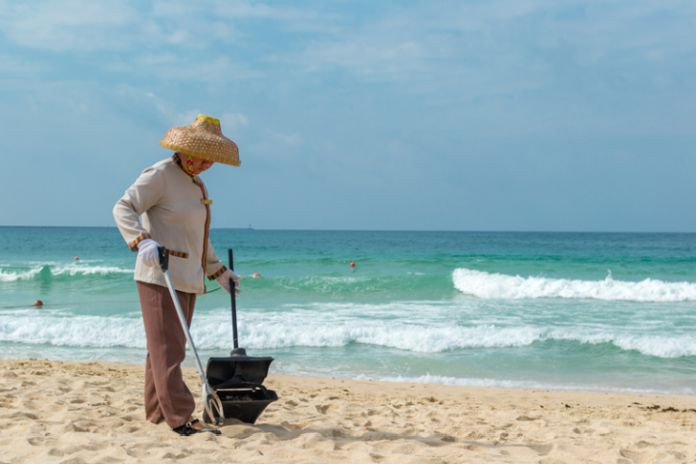By APEC Group on Services
SINGAPORE – Asia-Pacific Economic Cooperation (APEC) released a set of guidelines to further the forum’s work on environmental services and marine debris management. The guidelines encourage member economies to facilitate services that support the clean-up of marine debris from beaches, rivers, coastal areas, and the open ocean.
Marine debris refers to plastic and other litter, discarded and lost fishing equipment, industrial rubbish, and other human-created waste that enters the seas and oceans. A 2020 report by APEC Ocean and Fisheries Working Group estimated that marine debris costs the region nearly USD11 billion annually and will reach USD216 billion in 2050.
The APEC Non-binding Guidelines on Services that Support the Clean-up of Marine Debris were welcomed by APEC ministers responsible for trade when they met in Detroit last May.
“Under the guidelines, APEC members will, amongst other things, endeavour to promote trade and investment in marine debris clean-up services and to reduce relevant barriers,” said Thomas Fine, Convenor of the APEC Group on Services.
The group spearheaded the development of these guidelines, drawing from the APEC Reference List on Environmental and Environmentally Related Services endorsed at the 2021 APEC ministerial meeting.
“Economies will work together to develop a market for marine debris clean-up services, including by reviewing unnecessarily restrictive regulations, by fostering private sector engagement, and by facilitating the transition to a circular economy,” Fine added.
“While the best solution to the marine debris challenge is to stop plastic pollution from reaching the oceans in the first place, there is also an urgent need to strengthen marine debris clean-up efforts, the burden of which too often falls on coastal communities in developing economies,” said Fine.
The 2019 APEC Roadmap on Marine Debris underlined the severity of the challenge and APEC members’ desire to address it by encouraging collaboration on promoting relevant research and innovation, as well as knowledge-sharing.
“The economic cost of inaction on cleaning up marine debris is far-reaching,” said Dr Rebecca Sta Maria, executive director of the APEC Secretariat. “Marine debris not only impact operations of marine shipping and transport vessels, but also the tourism sector as debris get washed up on beaches and our shores. Add to this the impact on marine life in general, and the fishing industry specifically,”
“These guidelines will support our work in addressing a key environmental issue for our ocean-bound region, reiterating the key role that APEC plays in supporting green growth,” Dr Sta Maria concluded.
The guidelines recommend members to facilitate people movement and skills, making it easier for service providers and researchers to conduct business and access the market. It also asked members to consider giving providers’ vessels access to port facilities.
APEC Non-Binding Guidelines on Services that Support the Clean-up of Marine Debris





